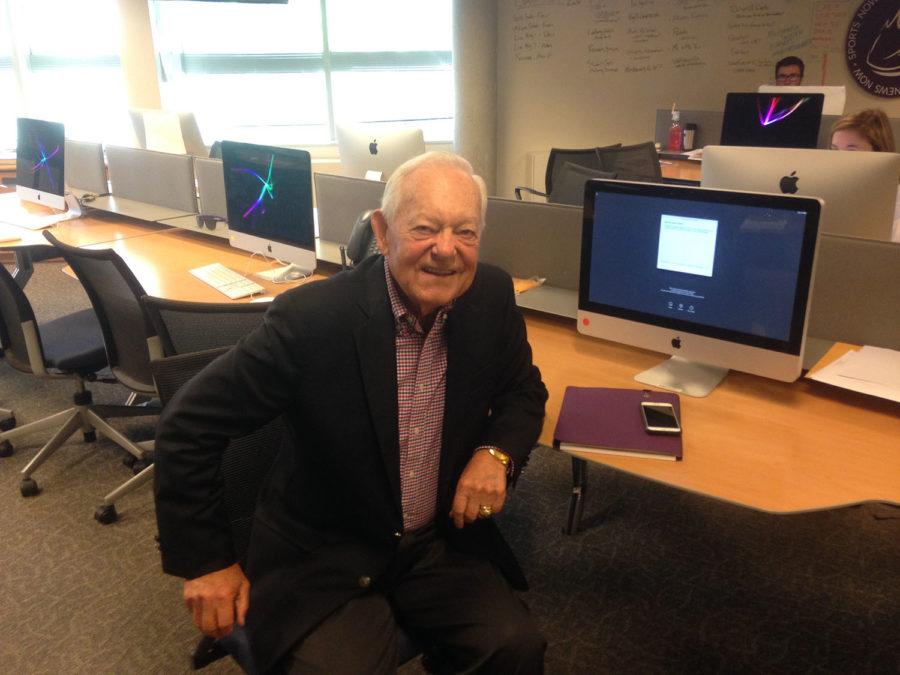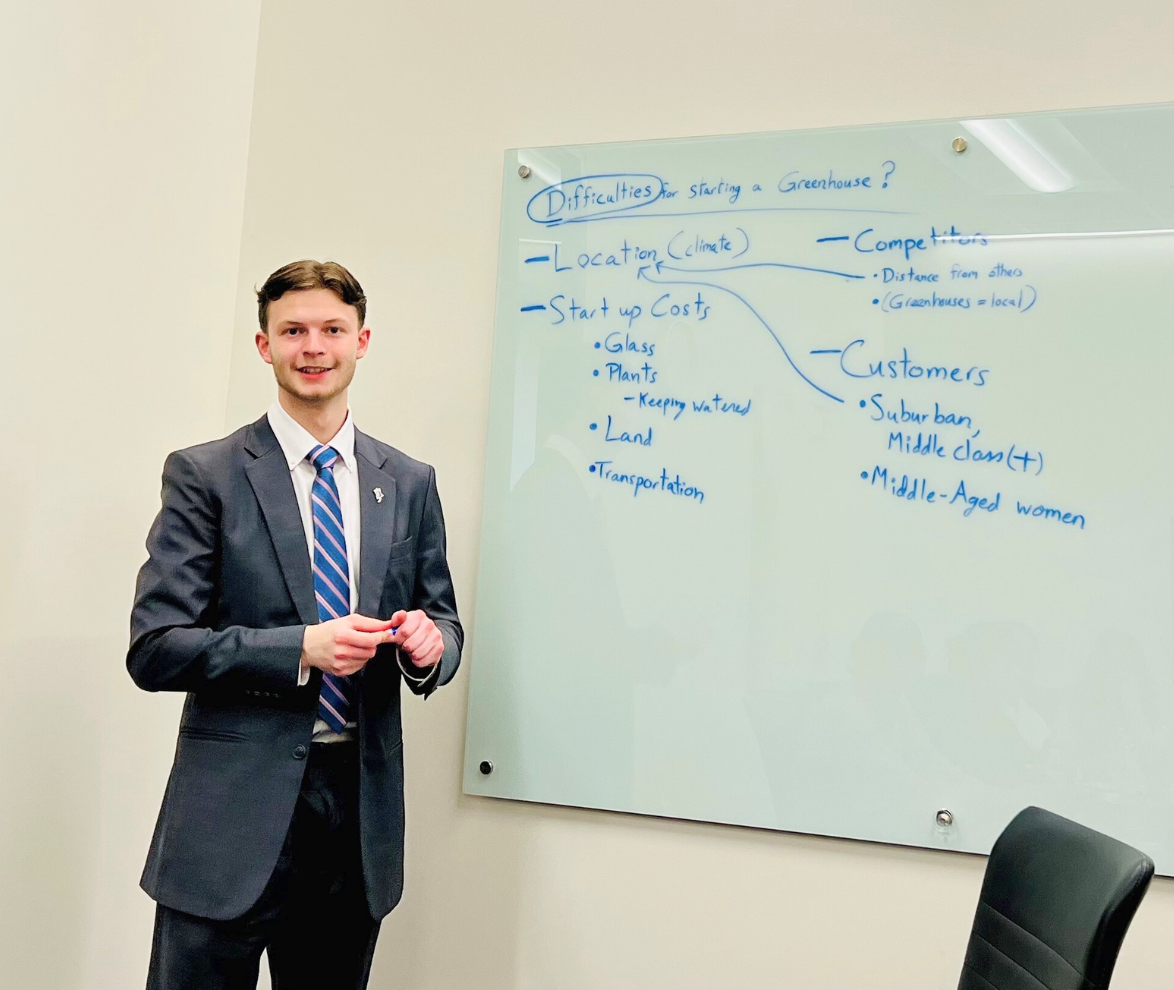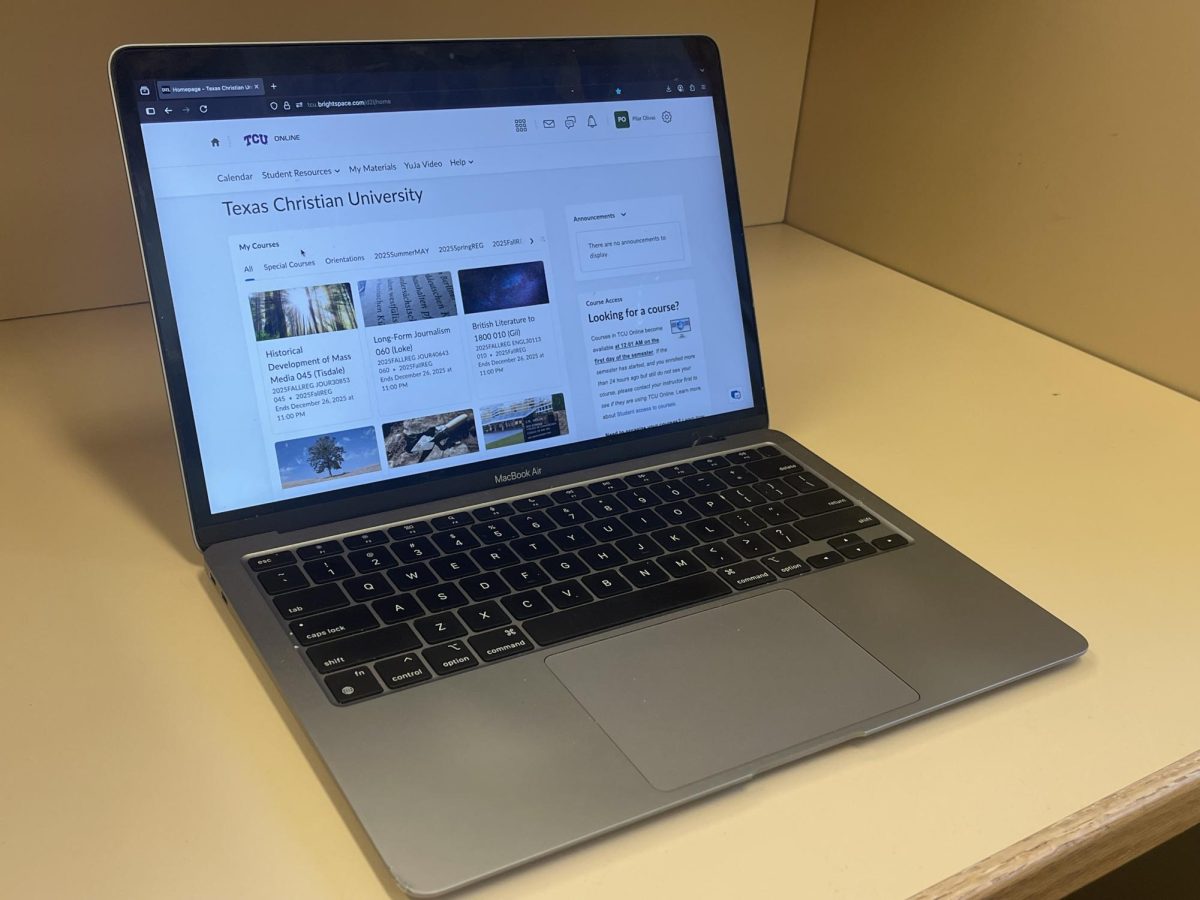TCU alumnus and former host of CBS’s Face the Nation Bob Schieffer visited TCU’s campus on Friday. The namesake for the university’s college of communication, Schieffer visited Fort Worth for an event with the college’s board members. Schieffer said he will also be attending the TCU vs SMU football game Saturday evening. Schieffer took time to sit down with TCU 360 and give his take on topics including politics and tomorrow night’s game. Here’s what he said. Q: How has your visit to the campus been thus far? A: “It’s great. I love to come back. I think it is one of the most beautiful campuses in America. You look at what’s going on here, there is just so much going on at TCU right now.” Q: How different is the campus today compared to when you were a student? A: “You can’t understand, unless you were there, just how much TCU has changed since I went to school here. It was $12.50 an academic hour, and I think it probably costs a little more than that right now. When I went to school here it was a parking lot surrounded by buildings which no two looked alike. Now we have finally put the school in the middle and put the parking on the outside.” Q: How do you feel about the campaigning and debates for the 2016 presidential election? A: “I’ve always said that every presidential debate is different, and this must be the most different that we’ve ever seen. I don’t think anybody a year ago would have thought that we’d be where we are right now a year ago. You have Donald Trump and Ben Carson leading on the Republican side, and on the other side Hillary Clinton is going down rather than going up. Right now I would not make a prediction of who will get the nomination for either side.” Q: You moderated presidential debates in the past, most recently between Obama and Romney in 2012. What were those like? A: “I had a very big responsibility in those debates. The role of any moderator in presidential debates is to present the best and most complete picture of the candidate. We’re electing a president, not a moderator. I called places such as the Center for Strategic and International Studies and Johns Hopkins University for advice on questions. Before my first time moderating a debate, I had a dream that I came to the debate without any questions and couldn’t think of any more to ask, and I still had 20 minutes left on the show. In 2012 I came to the debate with around 300 questions and only asked about 20.” Q: What are your thoughts on the Battle of the Iron Skillet on Saturday? A: I think we always have to be careful when we play SMU because nothing means more to them than knocking off TCU. We need to take nothing for granted. We worked out a lot of kinks last weekend and I think we’ve got a really good football team. Not to sound like a football coach but we need to take it one game at a time, and I’m sure that’s what Gary Patterson is telling those guys.” Q: What advice can you offer to students from your experiences, particularly those wanting to enter the field of journalism? A: “One of the biggest things I’ve learned is that it’s okay to make mistakes, as long as you correct them rather than hide them. Life goes on after mistakes, and you realize that you have to move on. I’ll tell you that some of the days that I thought were the worst of my career were actually the best days in retrospect, because I learned very valuable lessons from those shortcomings.”
Q & A with Bob Schieffer
Published Sep 19, 2015
More to Discover







